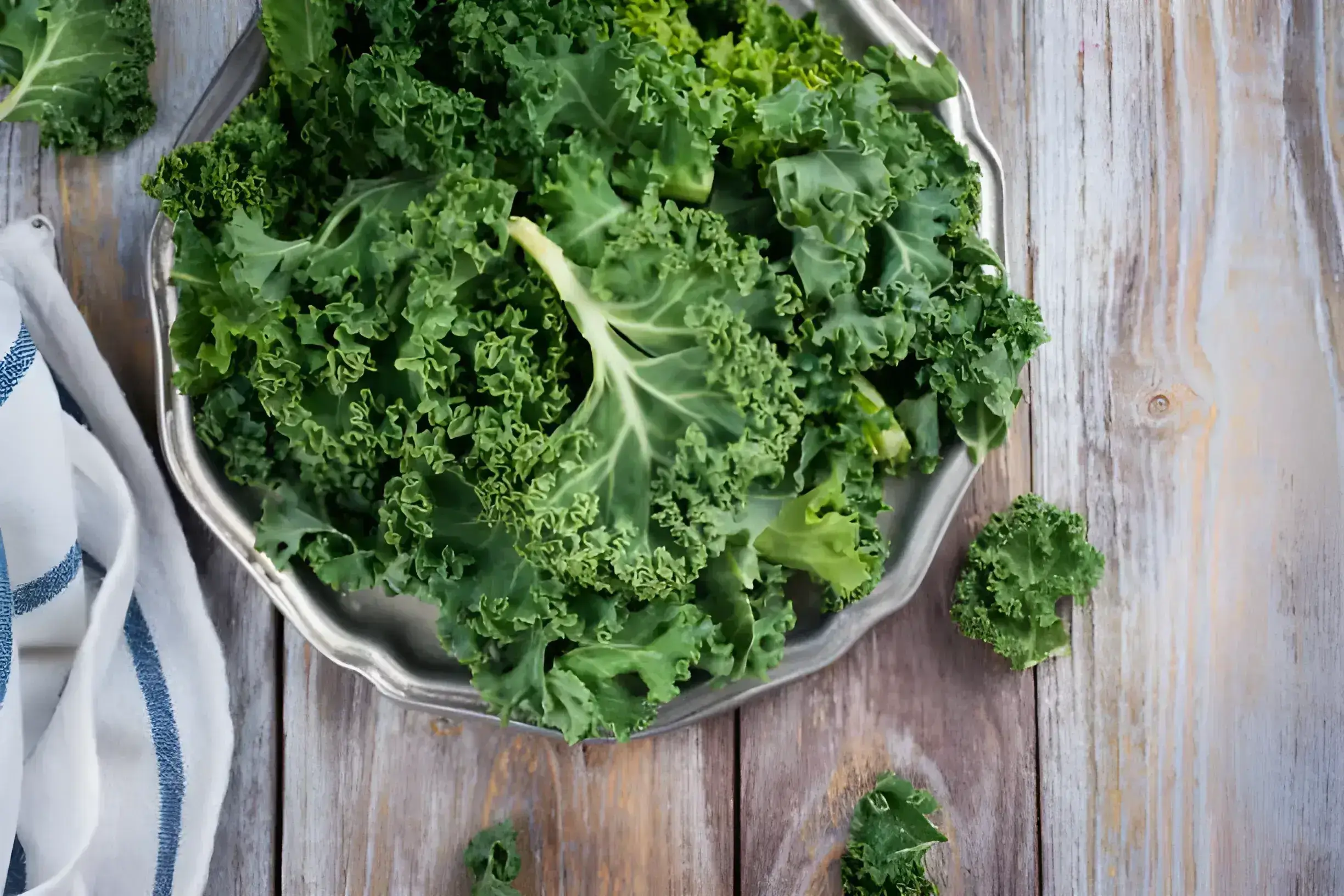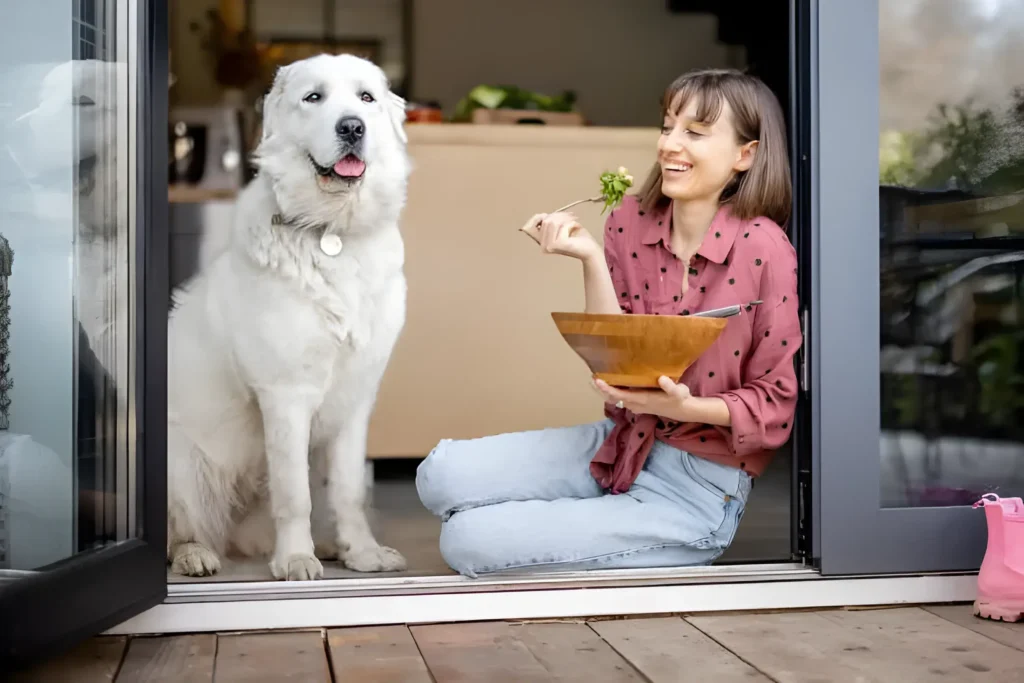Yes, kale can provide some vitamins and antioxidants that are good for dogs when offered in small amounts as an occasional treat. However, it’s crucial to understand there are potential drawbacks to consider before adding kale to your dog’s diet.
Why Consider Kale for Your Dog?
Nutrients Galore: Kale is packed with vitamins A, K, and C, antioxidants, and fiber, all beneficial for dogs’ health.
Cancer-Fighting Potential: Studies suggest kale’s compounds may have anti-cancer properties, a promising area for canine health.
Low-Calorie Treat: Kale can be a satisfying snack for dogs trying to keep a healthy weight.
The Risks of Kale for Dogs
Oxalates: Kale contains calcium oxalates, which can contribute to bladder and kidney stones in susceptible dogs.
Gastrointestinal Upset: In large amounts or introduced too quickly, kale can cause gas, bloating, or diarrhea in some dogs.
Choking Hazard: Tough stems or large pieces of uncooked kale can present a choking risk, especially for smaller breeds.
How to Feed Kale to Your Dog Safely

Talk to Your Vet: Especially if your dog has health issues, get your veterinarian’s input on whether kale is right for them.
Start Small: Begin with tiny amounts to monitor your dog’s tolerance.
Choose Preparation Wisely: Steamed or blanched kale is easiest to digest. Remove tough stems and chop finely.
Go Organic: Avoid kale potentially treated with pesticides.
Can Puppies Eat Kale?
Puppies have developing digestive systems that might be more sensitive to new foods like kale. While not strictly toxic, it’s generally best to wait until your puppy is at least 6 months old before introducing any vegetables. Always consult your veterinarian before adding anything new to your puppy’s diet.
Is Kale a Superfood for Dogs?
While kale offers benefits, it’s not a miracle cure and shouldn’t become your dog’s primary vegetable. Moderation is key, and some dogs may not thrive on it at all.
Fun Kale Recipes for Dogs
Important Note: These recipes are occasional treats, not a replacement for a balanced dog food.
Simple Steamed Kale with a Twist (Makes 1 Serving)
- ½ cup chopped, washed kale, steamed for 5 minutes
- 1 tablespoon mashed sweet potato
- ¼ teaspoon coconut oil (optional)
Combine steamed kale, mashed sweet potato, and coconut oil (if using) and mash slightly. Let cool before offering to your dog.
Frozen Kale and Banana Bites (Makes 4-5 Treats)
- ½ cup chopped, washed kale, steamed for 3 minutes and frozen in ice cube trays
- 1 ripe banana, mashed
Mix mashed banana with thawed kale bits and form into small balls. Freeze again for a refreshing summer treat.
My Dog Ate Too Much Kale! What to Do

If you think your dog may have eaten too much kale, watch them closely for signs of trouble like vomiting, diarrhea, or excessive thirst. Don’t hesitate to call your veterinarian for guidance, especially if your dog seems unwell. Being able to tell your vet the approximate amount of kale consumed will help them determine the best course of action.
Safer Alternatives to Kale
- Spinach: Contains similar nutrients but lower oxalates (offer in moderation).
- Green Beans: Tasty, and generally safe for most dogs.
- Broccoli: Another cruciferous veggie, but use sparingly due to potential stomach upset.
Real-Life Story: My Dog and Kale
“I tried giving my beagle a bit of kale as a snack. He gobbled it up but had terrible gas that night! I learned certain dogs are more sensitive than others.” – Sarah, dog owner
Expert Opinion: A Vet’s Take on Kale
“Kale can be a good choice for some dogs, but it’s not for everyone. It’s best as an occasional treat rather than a staple, and always prioritize pet-specific nutrition advice from your veterinarian.” – Dr. Jennifer Coates, DVM
Conclusion
Kale can offer a nutritional boost for your furry friend, but safety comes first. Understand the potential risks, practice moderation, and consult your vet, especially if your dog has any health conditions.
The photo featured below the post headline is Credit: nature picture/istockphoto
I hope you find this post helpful and informative. If Yes’ feel free to share it with your friends!
Frequently Asked Question
Can kale kill a dog?
It’s highly unlikely unless a dog consumes excessive amounts or has a severe allergy. However, it can cause health issues over time, especially in breeds prone to kidney or bladder stones.
How much kale is safe for dogs?
Start with a teaspoon per 20 pounds of dog weight a few times a week. Veterinarians recommend veggies shouldn’t exceed 10% of a dog’s diet.
Can dogs eat raw kale?
Thoroughly washed, it’s not toxic but may be harder to digest. Steamed or blanched kale is gentler on their stomachs.
Can dogs eat kale stems?
No, it’s best to remove the tough stems from kale before giving any to your dog. The stems can be a choking risk and could cause digestive blockages for some dogs.
Can dogs have pureed kale?
Yes, pureed kale can be easier for some dogs to digest, but still offer in moderation due to oxalate concerns.
Can puppies eat kale?
Introduce small amounts after 6 months of age and only after consulting your veterinarian. Focus on puppy-appropriate foods for their primary nutrition.
Is kale a superfood for dogs?
Kale has its benefits but shouldn’t be relied on as a miracle food. A balanced, vet-approved diet remains crucial.
My dog ate too much kale! What should I do?
Monitor them for vomiting, diarrhea, lethargy, or excessive thirst. Contact your vet for advice, especially if symptoms are severe or persist.
What are the signs of oxalate poisoning in dogs?
These include vomiting, lethargy, weakness, tremors, and bloody urine. Seek urgent veterinary attention if you suspect oxalate poisoning.
Are any types of kale safer for dogs than others?
All kale varieties contain oxalates. Different colors may have slightly varying nutrient profiles, but the risks remain similar.
Can kale help my dog lose weight?
Its low-calorie nature makes it a good snack alternative but shouldn’t replace regular dog food for balanced weight management.

